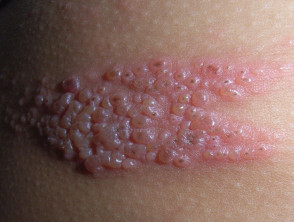HIV and Pregnant Women
How does HIV affect pregnant women and infants?
Women can give HIV to their babies during pregnancy, while giving birth, or through breastfeeding.But, there are effective ways to prevent the spread of mother-to-infant transmission of HIV:
- Taking anti-HIV drugs during pregnancy—either a drug called zidovudine or AZT alone or in combination with other drugs called highly active antiretroviral therapy (HAART)—a mother can significantly reduce the chances that her baby will get infected with HIV.
- Delivering the baby by cesarean section, and doing so before the mother’s uterine membranes rupture naturally, reduces transmission that may occur during the birth process. Use of anti-HIV drugs during pregnancy and delivery, combined with a cesarean section in women with certain levels of HIV in their blood, can reduce the chance that the baby will be infected to less than 2 percent.
- Avoidance of breastfeeding by an HIV-infected mother. HIV can be spread to babies through the breast milk of mothers infected with the virus. The American Academy of Pediatrics recommends that, in countries such as the United States, where infant formula is safe and is often available and affordable, HIV-infected women feed their infants commercially available formula instead of breastfeeding.
Approximately one-fourth to one-half of all untreated pregnant women infected with HIV will pass the infection to their babies. HIV infection of newborns is very rare in the United States because women are tested for HIV during pregnancy, and women with HIV infection receive anti-HIV drugs during pregnancy, cesarean delivery if their HIV blood levels are high, and are advised not to breastfeed their infants.
Fuente
Womens Health
http://womenshealth.gov
Artículos relacionados:
-
Salud antes de la Concepción
-
Preparación para el Embarazo
-
Síntomas del Embarazo
-
Pruebas de Embarazo
-
Pruebas de Laboratorio para Detección de Embarazo
-
Cuidado de la Salud Durante el Embarazo
-
Etapas del Embarazo
-
Embarazo y los Medicamentos
-
Estrés Durante el Embarazo
-
Lo que Usted necesita para su Bebé
-
Ultrasonido
-
Amniocentesis
-
Cómo Evitar el Embarazo en los Adolescentes
-
Embarazo Después de los 35 Años
-
Embarazo Después de los 35 Años. Preguntas más Frecuentes
-
Fecundación in vitro
-
Embarazos Múltiples
-
Monitoreo Fetal
-
Aborto Espontáneo
-
Radiación y Embarazo
-
Bajo Peso al Nacer






